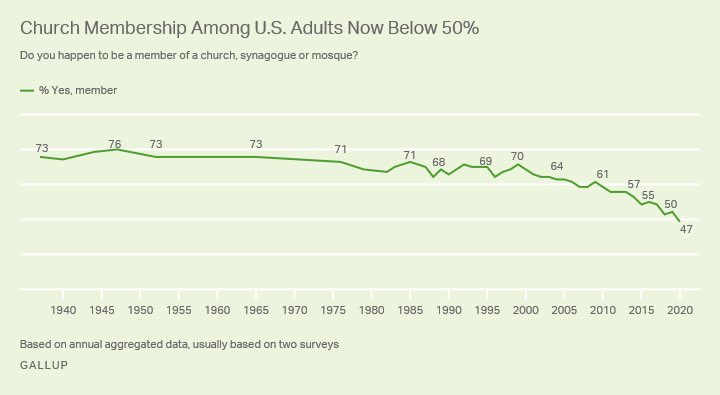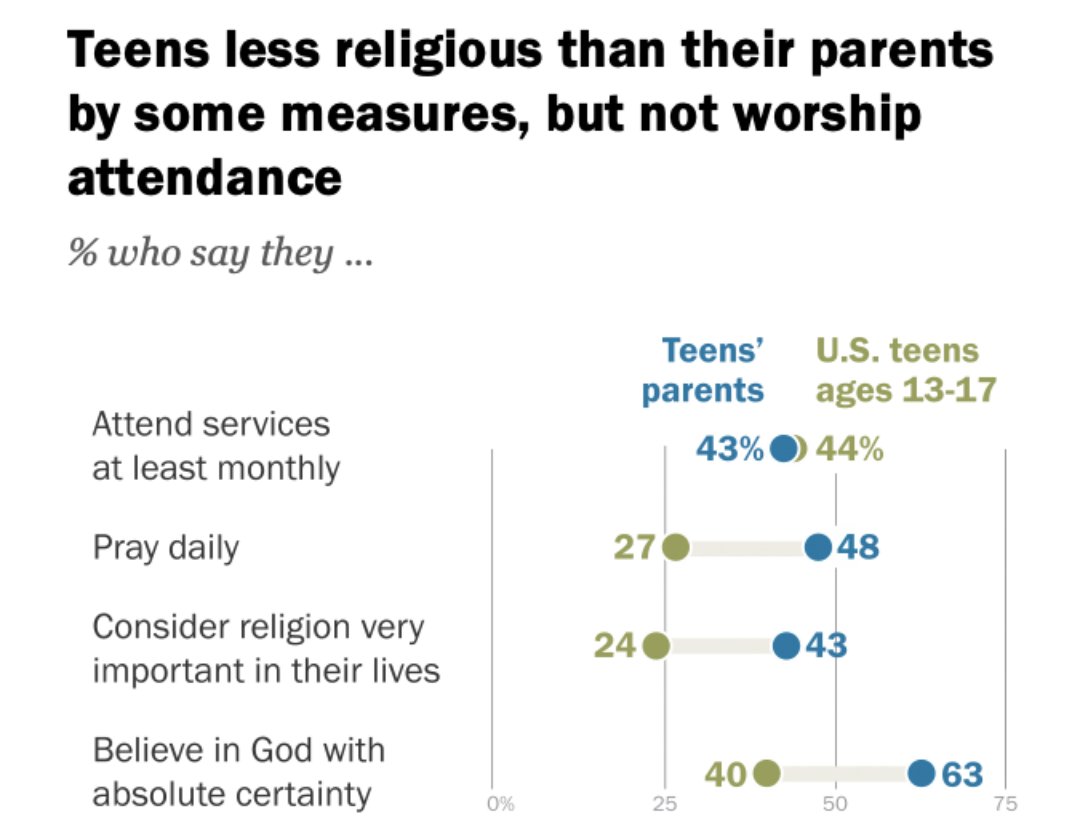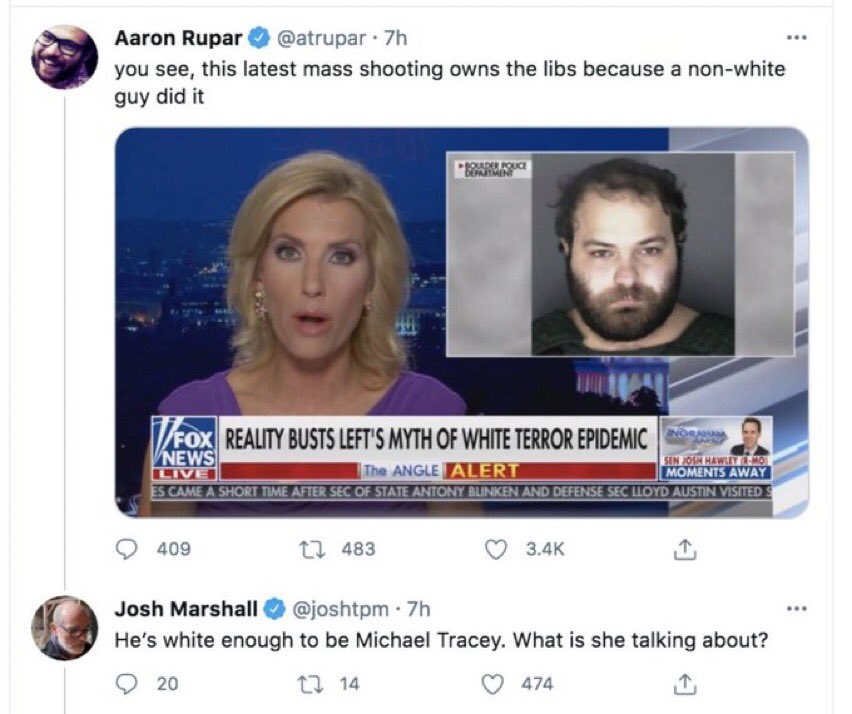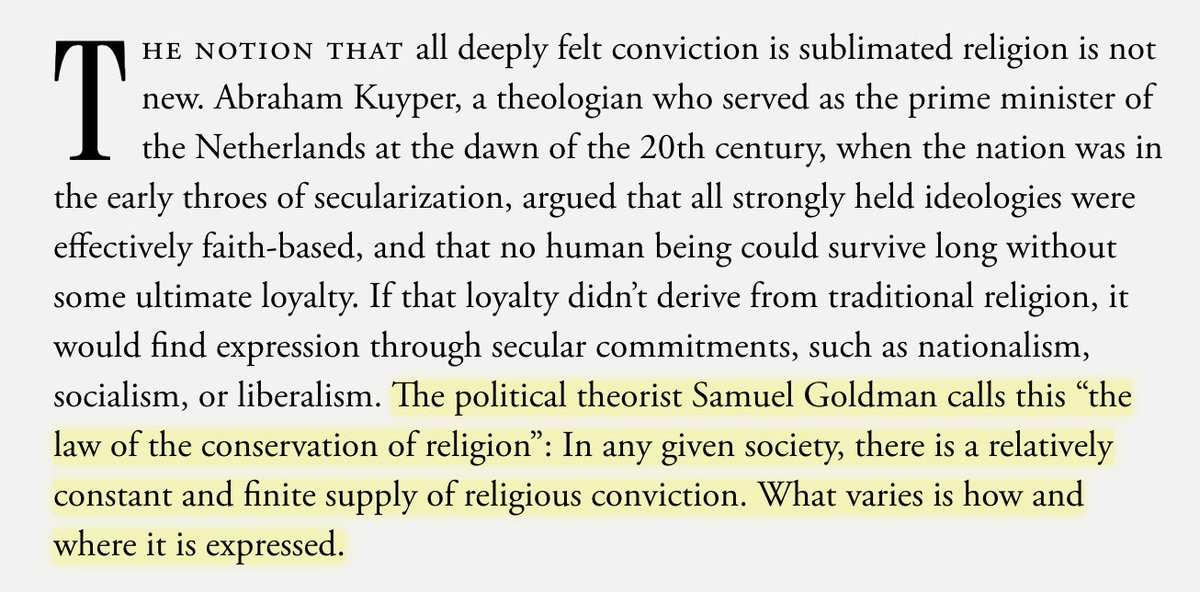
I have a new essay out today on why Christianity failed. Thought I'd share a few thoughts here about what inspired it. The piece brings together a few different strands of my thinking on religion. 1/x wisdomofcrowds.live/why-christiani…
In my recent Atlantic essay 'America without God,' I focused on what Christianity's decline meant for the American idea. But that still leaves open a different, challenging question on why Christian attachments have declined so rapidly. 2/x
theatlantic.com/magazine/archi…
theatlantic.com/magazine/archi…
The intellectual and spiritual vacuum intensified due to an unlikely confluence of events in the 2000s, and Trump was able to benefit from this. But there's a counterfactual history where instead of Trump filling the vacuum, Christianity could have made a return. It didn't. 3/x
The numbers are quite striking. They had held constant for most of the 20th century, despite the cultural revolutions of the 1960s and 70s. 4/x wisdomofcrowds.live/why-christiani… 
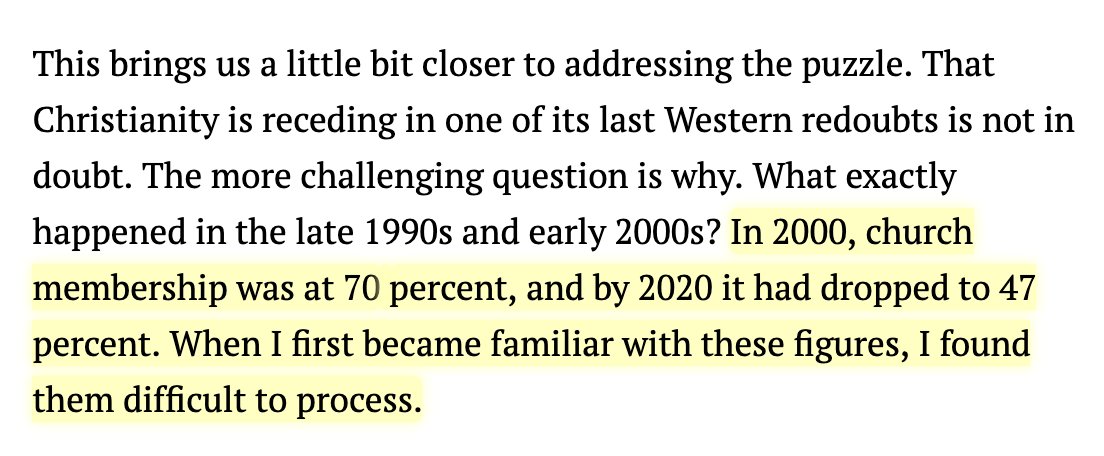
The why of Christianity's decline is in part an intra-Christian question—and one that's painful for adherents, who've been hoping to reverse the trend. One possibility is that the US is simply converging with other Western democracies. It wasn't an exception. It was just late 5/x
The fact that I believe Islam is fundamentally different than other religions, including Christianity, obviously influences my view here. The contrast between how Islam has resisted secularization and how Christianity hasn't is instructive. 6/x amazon.com/Islamic-Except…
I'm really excited about this essay because it allowed me to test out a few different arguments, drawing on the work of the anthropologist Talal Asad as well as the historian @holland_tom, whose recent book Dominion is brilliant. 7/x
wisdomofcrowds.live/why-christiani…
wisdomofcrowds.live/why-christiani…
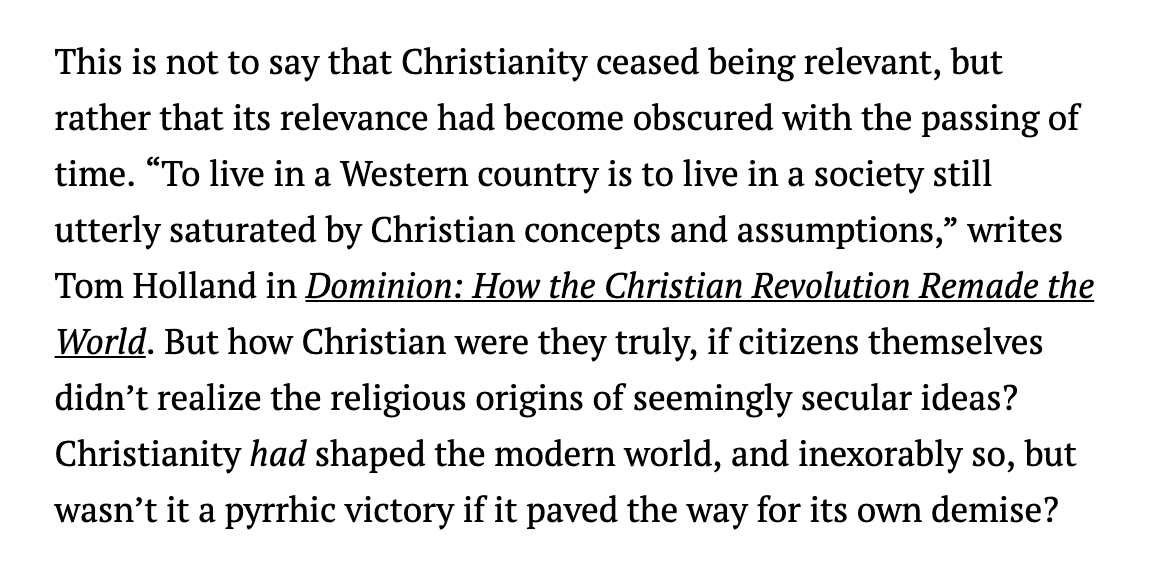
• • •
Missing some Tweet in this thread? You can try to
force a refresh



